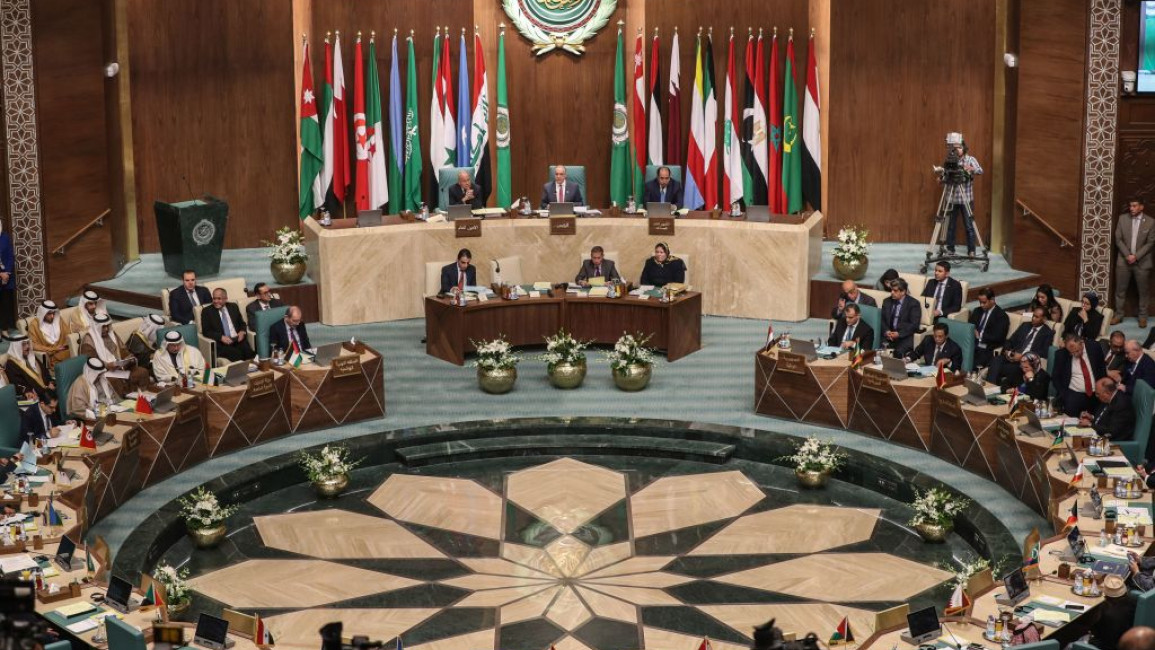Alwaght- First Arab League summit since the coronavirus outbreak in 2019 was held in Algeria. On the one hand, Saudi Arabia, the UAE, Morocco, Oman, and Bahrain have not attended and on the other hand political differences continue to exist among the member states.
Determining the agenda in the foreign ministers’ summit
The last meeting of the Arab League was the conference of the foreign ministers of the member states, which was held in September at the bloc’s headquarters in Cairo. The foreign ministers participating in that meeting discussed many issues, including resolutions on Palestinian issues, ongoing conflicts in Libya, Syria and Yemen, developments in Comoro Islands, the Djibouti-Eritrea border dispute, and Somalia.
The biggest controversy of the ministerial meeting emerged when Egyptian Foreign Minister Sameh Shoukry and his accompanying delegation walked out of the meeting chaired by the representative of Libya, because the Libyan delegation was represented by the National Unity Government based in Tripoli, which Egypt does not recognize.
Libya will was one of the sticking points at the summit. Egypt and Algeria are at odds over Libya's participation in the Arab League. Algeria has invited the Turkey-aligned National Unity Government of Libya. This invitation along with Algeria's growing relations with Ethiopia — with which Egypt is in dispute over Grand Ethiopian Renaissance Dam (GERD)— has infuriated Cairo.
Reasons Palestinian cause given focus
This meeting is captivating attention for another reason: the prominence of the Palestinian cause. Firstly, the meeting in Algeria is the first meeting of the leaders of the Arab League after the normalization agreements between some Arab countries led by the UAE with the Israel regime, and secondly, the Arab and Islamic world, amid emerging signs of a new intifada in the West Bank and the intensification of the Israeli regime's crimes against the Palestinians, is watchful to see what the Arab bloc would do in reaction to the Palestinian developments.
Thirdly, Algeria, as the host and chair of the summit, has focused on its main regional rival, Morocco. Algeria supports Polisario Front's push for independence of the disputed region of the Western Sahara region. The militant group in 2020 announced the resumption of its armed struggle against Morocco. Since then, relations between Algeria and Morocco have been severely strained, with Algeria suspending its diplomatic relations with Morocco, not renewing the gas supply contract, and closing its airspace to Moroccan aircraft.
Since the Moroccan government joined the normalization process at the end of 2020 in exchange for the US support for the country's sovereignty over the Western Sahara, the Palestinian issue has become a pressure lever against Morocco at the meeting in Algeria. President Abdelmajid Tebboune of Algeria on Tuesday demanded the establishment of a ‘coordination committee’ in support of the Palestinian cause and emphasized Algeria's readiness to submit this request to the UN in order to grant full membership to the Palestinian government in the General Assembly.
Seeking to distract attention from Palestinian cause centrality
Algeria summit started while the Palestinian developments were apparently overshadowing it. Last month, Palestinian groups gathered in the Algerian capital to sign a comprehensive agreement in an effort to end years of internal strife. The proximity of Palestinian groups and the effort to create a united front against the pressures of the Israeli regime and the aggressive approach it has taken towards Al-Quds residents and the continuation of illegal settlements in the West Bank can be regarded as a reaction to the normalization of some Arab countries with Tel Aviv.
The normalization pacts practically weakened the position of the compromise and negotiation approach in the eyes the Palestinian people and added to the weight of an approach favoring resistance to the Israeli occupation, to a degree that the West Bank is now the scene of the emergence of new armed resistance groups. In such a situation, the common demand of the Palestinians from the Arab leaders is to declare their support for the intifada formed in recent months and to condemn any cooperation and normalization of relations with the Israeli regime. But supporting such a demand will mean admitting defeat for both the governments that have entered the normalization (such as the UAE, Bahrain, and Morocco) and the Saudis, who still consider themselves supporters of the dead ‘Arab peace’ plan. Therefore, the heads of these countries refused to go to Algeria in order to put the Arab League in a weak position and so unable to unite its voices in support of the Palestinians and criticize normalization.
To overshadow Algeria meeting, threadbare accusations have been repeated to divert its focus from Palestine as the top issue of the Muslim world. The Arab League Secretary-General Ahmad Aboul Gheit recently accused Iran of interference in the Arab world affairs.
In an interview with Cairo TV, Aboul Gheit claimed that Iran interferes in the affairs of Yemen and its aim is to threaten the security of Saudi Arabia. He added “we are always critical of this issue.” He labeled the Arab awakening waves of 2011 as “Arab destruction” but did not refer to the Saudi, Emirati, and Qatari role represented by spending billions of dollars to provide arms and pay the terrorists in Syria and Iraq, the Saudi-led war on Yemen that led to the world's biggest humanitarian crisis, and also the conspicuous Saudi interference in the Lebanese affairs. All he did was highlighting what he called the Iranian and Turkish influence in the Arab world.
This is what the Israelis and the Americans vehemently wish for and makes them happy about an inter-Arab and Muslim gap that distances the bloc from a united stance against the Israeli occupation and its continuation. The same gap, widened by behind-the-scenes role played by Washington, was observed over Syria return to the bloc, and despite Algeria's push and show of favor of several countries, differences over Syria taking back its Arab League seat remain standing.



























